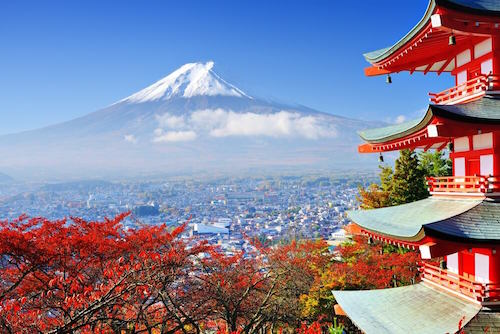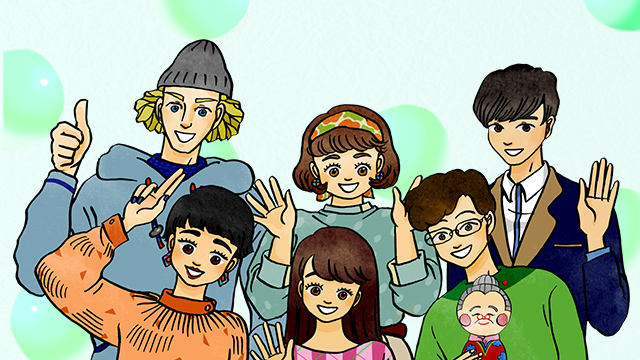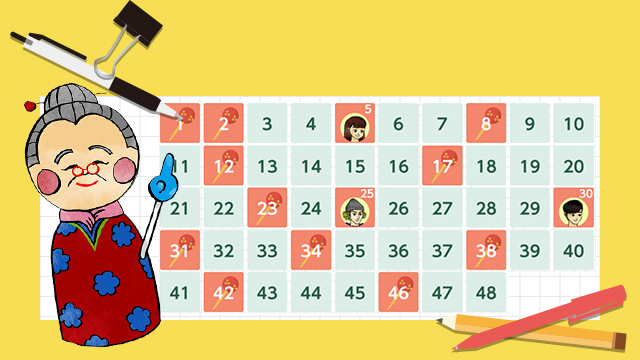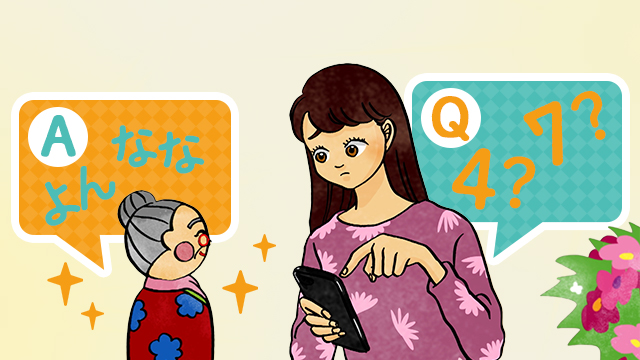
Essays About Japan: Top 5 Examples and 5 Prompts
Japan is a beautiful country famous for its lush landscape, delicious food, and well-mannered people. Here are some examples of essays about Japan.
A developed country in Asia known as the “land of the rising sun,” Japan has become a hot commodity for tourism and business. Japan is truly a sight to behold, from its beautiful cherry blossoms, efficient public transportation system, and delicious food.
Japan’s rich history has allowed it to develop into one of the most advanced nations in the world, and its technology is renowned worldwide. Moreover, its people are known for their discipline, hard work, and resilience, even in the face of severe natural disasters. Japan is, without a doubt, a country worth visiting.
If you want to write essays about Japan, here are our best essay examples and writing prompts to help you begin.
1. What Japan Taught Me About Life by Beth Louise
2. japan experience: reflection on japanese culture by rayan elhafiz abdalla, 3. what i learned about design from travel in japan by teo yu siang.
- 4. The best time to visit Japan by Pat Kay
5. A Day Trip To Kobe by David Swanson
5 prompts for essays about japan, 1. what does japan mean to you , 2. misogyny in japanese society, 3. why visit japan, 4. japan’s history, 5. living in japan: what’s it like.
“In fact, there’s so much to see and do that it feels like a lifetime of exploring would never uncover all that’s on offer. It’s also a bright, buzzing lesson in living fast; just wandering around in the crowds is a massive adrenaline rush, and Monday nights are as mental as Fridays. But despite the intensity of a city so large, people are calm and quiet. It’s the most magical juxtaposition. Everything is moving at light-speed, but with such efficiency and thoughtfulness, that it feels like a well-oiled, intuitive machine, powering a ride that you never want to get off.”
In her essay, Louise writes about her experience traveling to Tokyo, Japan. She compares it to a machine, with all the people in the city playing their part. She is amazed by the people’s focus, discipline, manners, and sense of purpose, and she can better appreciate life’s simplicity. She is mesmerized by Japan and recommends booking a trip to Tokyo as soon as possible.
You might also like these essays about being yourself and essays about college .
“People were very friendly, they will greet you even if they don’t know you. One shocking incident that I will not forgot, is when the cashier was trying to help me put all my coin money in my wallet with me. In America I am not used to having someone put my money inside my wallet, that is really invading personal space. However, I learned that in Japan it seems normal to just drop off someone’s coins in their wallet.”
Similar to Louise, Abdalla reflects on new things he discovered about Japan and its people during his time there. These range from trivial things such as the “Pokemon Go” rollout in the country to the Japanese’ sense of honor and discipline. He recounts an experience in which the cashier was helping him put his change into his wallet, something he is not used to back home. He provides excellent, although short, insight into Japan, its culture, and its people.
“Everything around us is designed: from the smartphones we use every day to the tactile paving on a walkway. But it’s often hard to examine the designed environment around us with eyes as fresh as a tourist’s. So if you’ve made it to the end of this post, I’ve got a challenge for you: The next time you take a walk outside, try to become aware of the thousands of design decisions around you. What works, and what can be improved?”
Siang writes about the edge that Japanese cities and society in general have because they are well-designed. He cites innovations such as fast, automated cash register machines and aid for the visually impaired and recalls lessons such as the importance of accessibility when designing something.
4. The best time to visit Japan by Pat Kay
“When people ask me “When is the best time to visit Japan?”, I usually reply with “anytime”. Japan is always a good idea, at any time of year. It’s truly an all-year-round destination that provides vastly varied experiences throughout its distinct 4 seasons. Whether you’re a traveller who loves snow, or one who thrives in humidity; a traveller who wants to see beautiful nature changes, or wants to be thrown into crowds; whatever your style of travel, there’s a season and a time for that.”
Kay describes the weather and activities during the different seasons in Japan, giving readers an idea of when they would prefer to visit. Japan ranges from the ethereal but chaotic cherry blossom season to the calm, frigid snow season; however, each year’s season has its own charm. Kay’s essay gives good insight into the best times to visit Japan.
“When planning a visit to Kobe, consider the fact that the city has been completely rebuilt since 1995, following the great Hanshin earthquake that leveled much of the city. Except for a few memorials, you likely won’t be aware of the destruction at all. Instead, what you will discover is a cosmopolitan port city where foreign influences intermingle, museums are dedicated to sake, and a conveniently compact and walkable quarter showcases a robust nightlife scene that has featured jazz on the menu for nearly a century. Oh, and, of course, there is the beef.”
In this short write-up, Swanson lists the best things to do in Kobe, Japan, a place best known for its top-quality beef. However, there are many things to do in the city besides eating beef, such as viewing historical buildings, going to the hot springs, and visiting the botanical gardens. However, Swanson notes that eating is an integral part of a trip to Kobe, and one should not miss out on trying the beef.
In your essay, you can write about the country’s significance to you. For example, are you from there, or do you have Japanese ancestry? Have you visited? Write about your connection to the country and why this connection exists in the first place. If Japan has a special place in your heart, this essay topic is for you.
When editing for grammar, we also recommend taking the time to improve the readability score of a piece of writing before publishing or submitting
With all its glory and excellence, Japan is less evolved in gender equality. So how are women treated in Japan? First, delve into research about the treatment of women in Japanese society, and show how the culture differs from modern western gender equality ideologies. Then, discuss why Japan is behind in encouraging women’s equal rights. Make sure to cite research, statistics, and interviews to support your point.

This topic is straightforward; whether you have been or not, try to persuade others to visit the country. Include highlights that others should visit and suggestions for places others can visit. If Japan was a bad experience for you, go the other way: why should you not visit Japan?
Japan has a dark history surrounding its role in World War II. In your essay, briefly explain these events and research their effects on Japan after the war. How did the war change Japan- for better or for worse? Elaborate on the impact and, as always, include references to strengthen your arguments. This is quite a broad topic, so you can focus on one element of Japanese society: values, city planning, relationships with tourists, race, inequality, and gender equality.
Based on reading articles and sample essays as well as any experiences in Japan, list the advantages and disadvantages of living in Japan and conclude whether it would be ideal for moving to Japan or not. Use anecdotes from travel writers or people who live in Japan to show why living in japan is enjoyable or not so enjoyable. Pick a stance for a compelling argumentative essay.
If you are interested in learning more, check out our essay writing tips !
If you’re stuck picking your next essay topic, check out our guide on how to write an essay about diversity .

Martin is an avid writer specializing in editing and proofreading. He also enjoys literary analysis and writing about food and travel.
View all posts

Essay on Japanese Culture
Students are often asked to write an essay on Japanese Culture in their schools and colleges. And if you’re also looking for the same, we have created 100-word, 250-word, and 500-word essays on the topic.
Let’s take a look…
100 Words Essay on Japanese Culture
Traditional clothing.
Japanese culture is famous for its traditional clothing. The kimono is the most well-known dress. People wear it on special occasions like festivals and weddings. It’s made of silk and comes in many colors and patterns. The obi is a wide belt tied around the kimono. It’s not just clothing; it’s a symbol of Japanese beauty.
Japanese food is more than just sushi. Rice is a staple in their meals. They also love noodles like ramen and udon. Meals often include fish, pickled vegetables, and miso soup. Eating in Japan is an art. They value presentation and flavor.
Festivals are big in Japan. They celebrate the seasons, like cherry blossoms in spring. There’s music, dancing, and food stalls. Children and adults dress up and enjoy games. Lanterns light up the night. These events show Japan’s love for nature and community.
Japanese arts include delicate crafts and performances. Origami, paper folding, and calligraphy, beautiful writing, are popular. In theaters, you can see kabuki, a dramatic play style with colorful costumes. Their art is about detail and expressing feelings.
Respect is key in Japan. People bow to greet each other. They are polite and considerate. Children learn to respect elders and each other early on. This respect makes their society peaceful and orderly. It’s a core part of being Japanese.
250 Words Essay on Japanese Culture
Japanese traditions.
Japan is known for its unique traditions. Tea ceremonies show the beauty of calm and respect. People sit on tatami mats and enjoy green tea. The host carefully prepares the tea, showing the importance of every step. This tradition helps people find peace and enjoy simple moments.
Festivals and Celebrations
Japanese festivals are colorful and exciting. They celebrate the seasons, like cherry blossoms in spring or leaf colors in autumn. People wear traditional clothes called yukata and enjoy street food. Fireworks light up the sky in summer, and everyone feels joy together.
Arts in Japan
Japanese art includes beautiful paintings, calligraphy, and pottery. Manga and anime are popular among kids. These are comic books and cartoons that tell all kinds of stories. Origami, the art of paper folding, is also famous. With just a paper, you can make animals, flowers, and more.
Japanese Food
Food in Japan is not just about taste but also how it looks. Sushi is a well-known dish made with rice and fish. It’s healthy and delicious. Japanese people also enjoy noodles like ramen and soba. Meals are often served with green tea, which is good for your health.
Respect and Manners
In Japan, people greet each other by bowing. This shows respect. Kids learn to be polite and listen carefully when others speak. Saying “thank you” and “please” is very important. In schools, students clean their classrooms to learn responsibility and respect for their environment.
Japanese culture is rich with traditions, celebrations, art, food, and respect. It’s a beautiful blend of old and new, where each part is important and adds to the whole picture.
500 Words Essay on Japanese Culture
Introduction to japanese culture.
Japanese culture is like a beautiful tapestry, woven with history, traditions, and modern life. It’s a unique blend that forms the way of life in Japan, a country in East Asia. The culture is known for its traditional arts, distinct foods, and strong sense of community. Let’s explore some key parts of this fascinating culture.
Traditional Arts
When you think of Japan, you might imagine delicate paper cranes or beautiful paintings of cherry blossoms. These are part of the traditional arts that have been passed down for generations. Origami, the art of paper folding, is not just a craft but a way for people to express creativity. Calligraphy, which is the art of writing with a brush and ink, is another important traditional art. It’s not just about writing words; it’s about making the writing look like a piece of art.
Food in Japan
Japanese food is famous all over the world. Sushi, which is rice with fish or vegetables, is probably the most well-known dish. But there’s so much more! Try a bowl of ramen, which is a type of noodle soup, or tempura, which is seafood or vegetables that have been battered and fried. Japanese people take great care in preparing and presenting their food, making it not only delicious but also a feast for the eyes.
Festivals, or ‘matsuri’, are a big part of Japanese culture. They are often lively events with music, dance, and colorful costumes. One famous festival is the Cherry Blossom Festival, or ‘Hanami’, where people gather under blooming cherry trees to enjoy the beauty and welcome spring. Another important celebration is ‘Obon’, which is a time to remember and honor ancestors. During this time, people might visit their hometowns, clean family graves, and enjoy traditional dances.
Family and Community
Family is at the heart of Japanese society. Respect for elders and ancestors is very important. Many homes have a small altar called a ‘butsudan’, where they place pictures and offer food to remember family members who have passed away. Community is also key in Japan. People often work together to keep their neighborhoods clean and safe, and there’s a strong sense of helping each other out.
Modern Pop Culture
Japan is not just about tradition; it has a vibrant modern culture too. Japanese anime (animated movies and TV shows) and manga (comic books) are popular all over the world. Characters like Pikachu from Pokémon have fans of all ages. Japanese technology is also cutting-edge, with inventions like high-speed trains and advanced robots.
Japanese culture is a rich mix of old and new. From the quiet beauty of a tea ceremony to the excitement of a high-tech video game, there’s something for everyone. It’s a culture that values both respect for the past and innovation for the future. Learning about Japanese culture can be a fun adventure, full of surprises and new experiences.
That’s it! I hope the essay helped you.
If you’re looking for more, here are essays on other interesting topics:
- Essay on Japanese Family
- Essay on Japanese Friend
- Essay on Japanese Holiday
Apart from these, you can look at all the essays by clicking here .
Happy studying!
Leave a Reply Cancel reply
Your email address will not be published. Required fields are marked *
Save my name, email, and website in this browser for the next time I comment.
Personal Essay Example: Reasons Why I Want to Visit Japan
Where is one place in the world you would like to visit? Explain why you would want to visit this place, and what you would want to do or see once you arrive. Include specific details and examples in your response.
If I could visit any place in the world, it would be Japan. Many people, such as my friends, relatives, and reviews, told me how amazing Japan is. Japan is one of the most attractive places for tourists, millions of people each year travel there to try its exotic and traditional food. Another reason why is because of the beautiful sakura flowers that only bloom once a year. Japan also has one of the most unique hotels, one being a capsule hotel, like the name says you live in a capsule.
Japan is known for their natural beauty. There are many mountains, waterfalls, and forests, and most importantly, cherry blossoms. Like I said in my manifesto, I like adventuring to new places and especially in mother nature. As my parents say, I’m quite the photographer so, whenever I go to new places, I can add some photos to my collection and see many astonishing views. One of my wishes is that I get a Fujifilm X-T4, it is a camera that specializes in photography, and I want to capture almost everything that I do. If I go to Japan during April, I would definitely go to Chidorigafuchi. Chidorigafuchi is a seven hundred meters long river that leads to the Imperial Palace. The river is surrounded by cherry blossoms and you can take a boat/canoe ride down the river. Chidorigafuchi is one of the most popular places in Japan for viewing cherry blossoms, and during April, cherry blossoms bloom and shine at their brightest. Cherry Blossoms are one of my favourite types of plants because of how beautiful they are and how rare they are. Remember that this is a once-in-a-year time and the cherry blossoms die fast so if you get to see them, you are very lucky! The next place I would go to is Mount Fuji. Mount Fuji is a popular tourist attraction in Japan that a lot of people recognize. It is the thirty-fifth tallest mountain in the world and rises up to 12,388 feet, so I want to see it myself. When I’m at Mt. Fuji, I want to see around because there are five lakes and many temples that surround Mt. Fuji. There is also a lot of history, so I want to learn about it. An example is that Mt. Fuji was known as a sacred kami or spirit in the Shinto religion. The last place I would like to go is to a hot spring. Hot springs are very common because of all the volcanoes Japan has. Hot springs are very relaxing and are located in traditional Japanese inns.
Japan has one of the most unique and exotic foods in the world, that’s why I want to try their foods. Fun fact, 30% of the world's 7 Eleven’s are in Japan and it is pretty common to see a convenience store in every street. So whenever you need a cheap meal such as an egg sandwich, you can head over to 7 Eleven or Family Mart. Many shops in Japan have a traditional food called bento box. All families have a different recipe and they could be eaten for any meal, breakfast, lunch, dinner, and sometimes dessert. One exotic food that I want to try is omurice from Yukimura Motokichi. He works at Kichi Kichi and is most popular for his omurice. He entertains everyone with his cooking tricks, jokes, and makes a very memorable time for everyone. Omurice is a dish that contains fried rice and an omelette, topped off with some ketchup. Another dish I would like to eat is sushi, a traditional dish from Japan and is my favourite food of all time. I like sashimi over the rolls because I think that in sushi, the fish is the most important part of the combination. Sushi is a traditional food for the Japanese people and whenever you eat sushi in Japan, it may be pricey, but believe me, it tastes like heaven. Another food I would like to try is ramen. I love noodles and ramen is my favourite type of noodle dish. I would take tonkatsu ramen because ramen is about broth and tonkatsu ramen has pork bone broth. And for dessert, I would take mochi. Mochi has a wide range of flavours but I would take the green tea matcha because I drink green tea almost every day and it is my favourite type of tea. Unique food that is only grown in Japan is square or cube watermelons. They are essentially ornamental and are very expensive. They are around two hundred and fifty dollars and I want to see what’s so special about them. Another food I would like to try is street food. Every countries’ street food is unique but Japan’s stand out to me. There are more than two thousand items to try and street food doesn’t take very long.
There are a lot of tourist attractions in Japan and there is a lot I like to go to. I really want to go to Japan’s Disney World. I am a big fan of theme parks and I heard that Disney World is a very fun place to go to. So far, have been to Canada’s Wonderland and Universal and both turned out to be super fun. I really like Disney movies and now that they own Marvel or the Avengers, I really want to check out what they built for the Avengers. I also want to visit the Great Buddha of Kamakura. It is a colossal representation of Amida Buddha and is one of the most celebrated Buddhist figures. My family are Buddhists so it is nice to go here. Last but not least, I want to go to Hokkaido. Hokkaido is an island located north of Japan, taking up twenty percent of Japan’s mass and five percent of its population. Hokkaido is one of the most popular destinations for travelers in Japan. Boasting unspoiled natural sights, festivals, historical landmarks, coastline villages and the freshest seafood in the country, the island is sure to impress even the most seasoned traveler.
My third reason why I want to go to Japan is because of their unique hotels, one is a capsule hotel. Capsule hotels were also known as pod hotels are a type of hotel that has been invented in Japan. The room/capsule you get is roughly the length and width of a single bed and has the height for a person to crawl in and sit/sleep on the bed. The amenities you get would be the same as any other hotel, a/c, power sockets, slippers, etc. Amenities outside the capsule, you are given toilets, showers, Wi-Fi, dining rooms, and sometimes a cafeteria. It is around ¥2000 to ¥4000, which is 18 to 37 Canadian dollars, which is cheaper than most hotels. Once you get there, your clothing and footwear are swapped to Japanese clothing, yukata and slippers. Another unique hotel from Japan is bus and train hotels. Bus and train hotels both have the size of a business classroom in an airplane. They have comfortable reclining chairs that can turn into a bed. You are also given as many amenities as a hotel would.
In conclusion, I would like to visit Japan because I find that their natural beauty is really beautiful and their foods are very flavorsome. Japan, in general, is unique because I find that the culture, art, technology, etc is very different from other countries. I think that no other country can offer the same characteristics Japan has.
Related Samples
- Narrative Essay about My First Day in America
- Personal Narrative Essay: The Rosary Walk
- Child Labor In The 1800s Essay Example
- Essay Sample on Mexico-U.S. Migration
- Personal Essay Sample about Rural Education
- Research Paper on Why Do People Work
- Marx's Theory of Alienation Essay Example
- Personal Narrative Essay: Fishing and Camping Trip
- The Boy in the Striped Pajamas and an Autobiography
- America in the 1950's Essay Example
Didn't find the perfect sample?

You can order a custom paper by our expert writers
Japan’s History and Culture on a Global Scale Essay
Introduction, works cited.
Unearthing the history and culture of Japan is an intricate endeavor. Among the current major powers, Japan is the most distinctive in its environment and culture. The origin of the Japanese language is among the most disputed arguments in linguistics (Diamond par. 4-5). Such arguments are vital to the self-image of the Japanese and to the manner in which other people perceive them. This paper discusses Japan’s history and culture under the creative legacies theme while focusing on hindrances and advantages in the country’s contributions to the world’s civilization and knowledge. The increasing dominance of Japan and touchy affiliations with the neighbors make it more significant to stand against myths and get answers.
The hunt for answers is complex since the proof is exceedingly conflicting. For instance, Japanese are biologically indistinctive, and their looks and genes are comparable to the Koreans and some Asians. 1868 marked a period of the modernization of Japan, with the Meiji restoration leading to the centralization of everything about the emperor.
Historical affirmations have created the notion that the Japanese are intrinsically not creative. All through history, Japan has methodically absorbed technological and scientific principles from overseas. In the course of more than 200 years of state-enforced insulation from European rebellion and Christianity, from around 1630 to 1850, the nation’s scholars collected scientific and technological details systematically from Dutch sources (Coleman 5). A trend of American and European intrusions in Northeast Asia starting in the 1850s compelled leaders in Japan to search for more enlightenment from the West, with the objective of centering on military and engineering disciplines.
Towards the end of the 19 th century, the Meiji Period witnessed quick industrialization, urbanization, transformation, and adjustment of Western organizational endeavors. Such advancements stimulated the establishment of a higher education system in Japan. The stress on the establishment of university education, nevertheless, strongly influenced the assimilation of foreign knowledge and technology transfer, especially in sectors such as engineering that experienced instant applications.
The overall pattern of copy-from-overseas continued for some period after the end of the Second World War, as confirmed in comprehensive copyright certification and reverse engineering, taking part in the assessment of successful products from competitors (Coleman 5). Foreign language acquisition following the war, with its inculcation of reading capacity at the cost of productive proficiencies, revealed the nation’s knowledge-gathering stance.
In 1937, Sakichi Toyoda made significant contributions to the Japanese Industrial Revolution when he established the Toyota Corporation. This has turned out to be one of the most successful and biggest car companies across the globe. Though Japan has a far-reaching and interesting history, it was not swayed by foreign nations, and its culture has thrived in isolation. Nonetheless, the moment her ports began operating and trading with the US, Japan started to industrialize and develop (Tsutsui 23-27). Ultimately, the nation has risen into a mighty world power. After successfully overcoming numerous obstacles subsequent to the Second World War with the help of the United States, Japan rebuilt its financial systems and currently remains an economic power.
The traditional Jomon community existed from 14,500 to around 300 BCE. They were the early hunters and gatherers who made pottery with a complexity that still amazes to date. The Yayoi befriended the Jomon community, interacted with the Chinese, tilled the land, and erected a fundamental political formation. At the same period, the Japanese language borrowed Kanji, good-looking and charming characters, from China (Walker 19-23).
A military nation referred to as the Yamato confederation arose and took pride in having the first monarch who acted as a god. The remnants of the Jomon community, the Emishi, were subjugated by the Buddhist theocracy, who established a new center in Kyoto. In 737, an outbreak of smallpox gave room for the first immunization against such future occurrences. Numerous upheavals, volcanic eruptions, and a comparatively weak nation resulted in the leadership of Samurai in 1185. In the course of the Onin battle, Kyoto collapsed, and armed Buddhist Sectarians spread turmoil.
The 16 th century led to the connection of the three big names in the history of Japan, which included Hideyoshi, Ieyasu, and Nobunaga. Europeans’ router, Toyotomi Hideyoshi, attacked Korea two times with prospects on China. Although he was driven back from the Korean peninsula, Hideyoshi greatly expanded his Japanese territory (Walker 34-38). This made Tokugawa bring the Japanese under single rule following his conquest in 1600. In the course of the moderately stable period, Japan conquered the Ainu at a place called Hokkaido. Merchants increased in wealth, there was the emergence of a sentiment of Japanese exceptionalism, and the Americans arrived. The most recent in a sequence of occurrences and the ensuing unequal treaties assisted in the facilitation of the downfall of the Tokugawa Shogunate.
With blood taxes being charged and interests of the nation overshadowing those of individuals, increased industrialization resulted in intensive development and prosperity for some individuals while others suffered pollution, melancholy, and death. The mining of copper and coal resulted in the destruction of fertile lands. This was so intense that it made Tanaka Shozu, an environmentalist, decry the activities, affirming that the government was waging war against its people. Enhanced militarization resulted in Japan overpowering Russia in 1905 (Walker 49-53). Mistrust of the wealthy individuals with the rising industrialization was caused by the dishonesty of Taisho Democracy and the several political assassinations that followed.
After the withdrawal of the US influence on Japan in 1952, the country turned into an industrial powerhouse. In the 1960s, its economy developed greatly despite numerous high-profile pollution lawsuits revealing the ugly underside of its splendor. Japan’s success then started declining gradually in the 1990s (Walker 51-53). It is at this time that conflicts with China came up and worsened. Moreover, numerous calamities struck, and a dangerous earthquake was experienced. This sent immense waves over the densely populated regions and resulted in the meltdowns of a nuclear plant. Such occurrences are a solemn portrayal of the susceptibility of Japan as a nation consisting of Islands.
As Japan seeks to recover from past disasters, it experiences issues of over-fishing, exceedingly low birthrates, and increasing climatic changes, which it experiences along with most nations in the West. In the recent past, some Japanese have attempted to revise the victory of the Second World War into a less imperialist account of occurrences (Walker 57-59). The rising trouble with China has provoked questions regarding the wisdom in some parts of the constitution. The once ardent doctrine of passivism has developed some cracks. Nonetheless, Japan effectively promotes its popular culture across the globe and upholds an affable and largely productive connection with its greatest enemy in the Second World War, the US.
Japan’s distinctive culture started with its exclusive topography and environment. Comparisons show that Japan is far more secluded than Britain, which is just about twenty-two miles from the coast of France. Japan is more than one hundred miles from the nearest position in the mainland of Asia, which is South Korea. It also lies nearly 200 miles from the Russian mainland and approximately 500 miles from China (Diamond par. 5-6).
Moreover, climatic conditions have been found to make Japan unique. The rainfall it experiences, which is nearly 120 inches every year, results in its being the wettest temperate nation across the globe. Apart from the rains in winter that occur across Europe, Japan is also rainy during the summer growing season, which offers it the greatest plant yield than any country in the temperate region.
Just about 20% of the land in Japan does not have mountains inappropriate for farming as approximately 15% is agricultural land (Diamond par. 6-8). Nonetheless, a standard square mile of the farmland is fertile to the extent that it feeds eightfold more people than an equal ordinary area in Britain. The high rainfall in Japan also provides unparalleled support for the forests that regenerate fast after logging. Regardless of the thousands of years supporting a dense population, Japan is still in a position to give visitors a welcoming impression of greenness since over 70% of the land comprises forests.
Just as they like to emphasize, the Japanese are biologically and culturally somewhat uniform, with the exemption of the characteristic community of the Ainu in the northern island. A careful analysis appears to imply that the Japanese only got to the country recently from the mainland of Asia, not long enough to allow the development of major differences with their other cousins in Japan or displace the original inhabitants, the Ainu. Nevertheless, if that were the case, the Japanese language could be anticipated to demonstrate close similarity to a number of mainland languages as the case of English, which is comparable with other Germanic languages (Diamond par. 7-9). It is difficult to resolve the inconsistency between the seemingly ancient language in Japan and the proof for recent origins.
The Japanese culture is intricate and has both hindrances and advantages. If corporations wish to invest in Japan, they should start by understanding the main components of Japanese culture over and above its influence on the means of conducting business. If organizations fail to comprehend and make suitable adjustments, they could inadvertently offend Japanese sensitivities and fail in their endeavors.
Japan has made remarkable contributions in numerous technical and scientific domains (Mason and Caiger 48-50). Particularly, the nation has played a vital role in the digital revolution and has established various modern innovative and extensive technologies in sectors such as robotics and electronics established by Japanese entrepreneurs. Japanese popular culture, which is highly influenced by its electronic expertise, commands considerable control internationally.
Praying for practical gains is a widespread religious endeavor in Japan. It is referred to as gene teriyaki. It has an extensive nature, and a vast number of individuals pray and buy talismans for everything beginning with road safety and educational success to victory in businesses and protection from ailments. However, the practice has been largely disregarded in academic disciplines or pushed to the sidelines as an occurrence of superstition and deviation from the actual dynamics of religious beliefs. Establishing their research on a combination of textual, chronological, ethnographic, and current materials, Reader and Tanabe show the myth of such perspectives, demonstrating that, apart from being sidelined, the perception and performance of gene teriyaki are found at the core of the Japanese spiritual world (23-25).
Genze teriyaki exists just as a widespread religious practice, although it is backed by the doctrinal formations of numerous Buddhist divisions, is ordained in religious teachings, and is supported by basic training establishments, holy places, and temples. The gains are both sought and purchased, and Reader and Tanabe talk about the financial and commercial facets of why and how establishments uphold practical benefits (33-35). Concentration is drawn to the dynamism and flexibility in the spiritual settings where new products are provided in reaction to the varying demands. Interlinked in economic endeavors and stimulations are the assertions that strengthen and justify the advancement and application of underlying gains.
In the midst of the current great powers, Japan is the most characteristic in its surroundings and culture. This paper has shed light on Japan’s history and culture under the creative legacies theme. It has focused on barriers and advantages in the country’s contributions to the world’s culture and knowledge. 1868 was a period of the transformation of Japan, with the Meiji restoration bringing about the centralization of major things around the ruler.
Improved militarization led to Japan subduing Russia in 1905. Following the withdrawal of the United States control on Japan in 1952, the nation rose to become an industrial powerhouse. The exclusive culture of Japan is supported by the outstanding topography and environment. The culture and the history of Japan are complex and hold both impediments and benefits. For companies that desire to invest in Japan, there is a need to understand the main elements of Japanese culture besides its influence on the approach of carrying out business.
Coleman, Samuel. Japanese Science: From the Inside . Routledge, 1999.
Diamond, Jared. “In Search of Japanese Roots.” Discover , 1998. Web.
Mason, Richard, and John Caiger. A History of Japan . 2nd ed., Tuttle Publishing, 1997.
Reader, Ian, and George Tanabe. Practically Religious: Worldly Benefits and the Common Religion of Japan . University of Hawaii Press, 1998.
Tsutsui, William. Japanese Popular Culture and Globalization . Association for Asian Studies, 2010.
Walker, Brett. A Concise History of Japan . Cambridge University Press, 2015.
- Chicago (A-D)
- Chicago (N-B)
IvyPanda. (2021, June 2). Japan's History and Culture on a Global Scale. https://ivypanda.com/essays/japans-history-and-culture-on-a-global-scale/
"Japan's History and Culture on a Global Scale." IvyPanda , 2 June 2021, ivypanda.com/essays/japans-history-and-culture-on-a-global-scale/.
IvyPanda . (2021) 'Japan's History and Culture on a Global Scale'. 2 June.
IvyPanda . 2021. "Japan's History and Culture on a Global Scale." June 2, 2021. https://ivypanda.com/essays/japans-history-and-culture-on-a-global-scale/.
1. IvyPanda . "Japan's History and Culture on a Global Scale." June 2, 2021. https://ivypanda.com/essays/japans-history-and-culture-on-a-global-scale/.
Bibliography
IvyPanda . "Japan's History and Culture on a Global Scale." June 2, 2021. https://ivypanda.com/essays/japans-history-and-culture-on-a-global-scale/.
- The Ainu Ethnic Minority of Japan
- Ethnography Project: The Return of the Ainu
- Ainu People of Japan
- Medieval and Early Modern Japan: Oda Nobunaga, Toyotomi Hideyoshi and Tokugawa Ieyasu
- The Ainu Cultural Sketch and Changes
- Death and Funeral Customs of the Ainu and Nuer Peoples
- Buddhism's Things and Ideas
- Operations & Project Management in International Business
- An Aspect of Politics and Culture of Meiji in Japan
- American Fast Food in Foreign Countries
- Abbasid Era in the History of the Islamic World
- Fujiwara Family: Japan's Most Powerful Clan
- "A History of Chinese Political Thought" by Y. Kim
- Forced Cultural Assimilation: "Becoming 'Japanese'" by Leo T. S. Ching
- Ming-Qing China and Chosŏn Korea Relations
My Study Times
Education through Innovation
Essay on Japan | Japan – The Land of the Rising Sun
Essay on japan | speech on japan.
Essay on Japan | Japan – The Land of the Rising Sun | Short Essay on Japan | Article about Japan | Paragraph on Japan | Speech on Japan
Read Also : Essay On India
‘Life without endeavor is like entering a jewel- mine and coming out with empty hands’, reads a proverb of the country which has successfully established its own self as a multi- dollar jewel- mine. Land of the Rising Sun is a popular western name given to Japan, as the ‘kanji’ from which the name is taken, literally signals ‘the Sun’s origin’ as its meaning. The nomenclature comes from imperial correspondence with the Chinese Sui dynasty and refers to Japan’s eastern position relative to China.

The country of which Asia is a proud possessor, ranks 10th in terms of population and a splendid 36th in terms of density per kilometer square. With a 4.843 trillion dollars proliferating total Gross Domestic Product as per the 2015 estimate, the country rules over the 4th slot. The Human Development Index of Japan is also remarkably high at 0.890as per the 2013 consensus. The national language as well as the demonic of the citizens of Japan is Japanese and the currency doing circulations in the economy is Yen. Tokyo is the capital of the country that hosts various ethnic groups such as the Korean, the Chinese and many more. Japan, located in the Pacific Ocean, lying easy of China and Korea, stretching from the Sea of Okhotsk in the North to the East China Sea and Taiwan in the south, is a constitutional monarchy whereby the power of the Emperor is very limited. The Prime Minister of Japan is the head of the Government appointed by the Emperor after being designated by the Diet from among its members as explicitly required by the constitution of Japan.
Japan is certainly not only a mega- busy city that thrives on electronics and efficiency, but has also emerged as an effigy for others to take inspiration and guidance from, in the way the country has combated the attack on Hiroshima and Nagasaki, and the way the economy stands against the natural disasters, the recurring Tsunami to cite an example. This island country is truly ‘The Land of the rising Sun’ in every sense of the word.
About Charmin Patel
Blogger and Digital Marketer by Choice and Chemical Engineer By Chance. Computer and Internet Geek Person Who Loves To Do Something New Every Day.
- News for Kids
- Dominican Republic
- Netherlands
- New Zealand
- Papua New Guinea
- Philippines
- Puerto Rico
- South Africa
- South Korea
- Switzerland
- United Arab Emirates
- United Kingdom
- United States of America
- 7 Continents
- Australia/Oceania
- North America
- South America
- Chinese New Year
- European Union
- Trivia & Quizzes
- Solar System Quiz
- Travel Reviews
- Travel Health
- Travel Links
Competition 2024
- Winners 2023
- Winners 2022
- Winners 2021
- Winners 2020
- Winners 2019
- Request A Correction
- Elections 2024
- Olympics 2024
- Japan - commended
Japan The Country of My Dreams
Essay writing competition 2020 category: 8 - 11 years - commendation -.

Commended entry: "Japan The Country of My Dreams" by Leila El Baba from Lithuania.
The following article was submitted in the Kids World Travel Guide Essay Competition 2020 in the Junior Category 8-11 years.
Japan The Country of My Dreams
Hello, I’m Leila. When someone asks me "What country would you like to go to?" my brain explodes with different beautiful continents and tons of stunning countries that I would love to explore, but one small island in Asia shines the brightest. It’s Japan.
Why Japan? Even the Japanese might be thinking that. Well, this country is just so extraordinary and unique that I can't even explain it to be honest with you. It's in the East of Asia, across the sea, South Korea, and straight up, Russia, from Fukuoka down, is the Philippines and from Yokohama if you go on a boat east, it will take a while but you will reach the USA.
Now that I've looked at the map I have realised that Japan isn't that small, in fact its way bigger than Cyprus, that was surprising to see because I thought Japan was so small!
Japan is a mountainous island country with over 100 active volcanoes, gorgeous beaches with clear waters and white sand and enchanting blossom trees! Lovely country with kind people and deep traditions.
The food is amazing there! I know it because I've tried sushi and ramen many times before, and even made it myself but I want to see professionals doing it! Practically that’s all I’ve been waiting for, all these years I’m learning how to use my chopsticks that I got for my tenth birthday.
I have never been to Asia except for at least a couple of measly times and that country is called Lebanon, right next to Syria, not far from Cyprus and Turkey. It’s beautiful there, the weather is always sunny, even in the winter! I haven't been further into the world than that, that's probably why I keep thinking "When will I be able to go there?"
Practically now with CoronaVirus I can't go anywhere! And of course I can't go alone cause I'm just ten, but that won't stop me from dreaming! Right? So… Japan!
Pretty far away though about eleven or more countries away from where I live now, Lithuania ( it would have been further if I wouldn’t have moved from the UK). So, I love going by plane, I just hate the airport, it is crowded and smells disgusting! Oh I'm waiting, dreaming and planning in my mind just an amazing trip to that country!
Well, I guess, I've told you how wonderful Japan is with its nature, food, amazingness and more! So… That's the country of my dreams, Japan.
In the Age category 8 - 11 years, Leila El Baba's essay takes us on a dream journey to Japan. Well, we all wish we could travel with you there to experience the 'amazingness'! And surely the time to travel will come again! Until then we dream on...
Well done, Leila! Never stop dreaming! Congratulations!
Leila attends Šiauliai Centro Primary School in Lithuania .
Popular Pages
Competition 2020 essays, competition 2021 essays, competition winners 2022, competition winners 2023.
Back from Japan The Country of My Dreams to Essay Competition Winners Listing
Return to Kids-World-Travel-Guide Homepage
Recent Articles
Moldova Facts for Kids | Modova for Kids | Geography | Travel | People
Mar 28, 24 10:17 AM
Ukraine for Kids | Ukraine Facts for Kids | Geography | Superlatives
Mar 28, 24 03:43 AM
France Travel Guide | Kids World Travel Guide | France for Kids
Mar 25, 24 10:47 AM
Romania Facts for Kids | Romania for Kids | Geography | Travel | Food
Mar 19, 24 07:11 AM
Passport Facts for Kids | 25 Amazing Facts about Passports | 2024
Mar 15, 24 09:55 AM

Hawaii Facts for Kids | USA | Hawaii for Kids | Geography | Travel
Mar 13, 24 10:47 AM
2024 Elections Around The World | Elections in 2024 | Geography
Mar 13, 24 08:48 AM
Competition 2024 is open!

Would you prefer to share this page with others by linking to it?
- Click on the HTML link code below.
- Copy and paste it, adding a note of your own, into your blog, a Web page, forums, a blog comment, your Facebook account, or anywhere that someone would find this page valuable.

Events & Celebrations
Organisations, games & quizzes, travel tips, competition, more about japan.

Winning Essays 2020

Winning Essays 2021

Winning Essays 2022

Winning Essays 2023

Like what you read?

Join us on Facebook
Kids World Travel Guide
Brilliantly
Content & links.
Verified by Sur.ly
©Kids-World-Travel-Guide.com 2010-2024 | Created by Regina Gräff and KidsWorldTravels
All rights reserved | Privacy Policy | Disclaimer

Japan Essay
Article By: Isaac Goodman-Boyd

I loved Japan before I visited there– loved their video games, TV shows, martial arts, and amazing sword fights. But my only contact with Japan was through the Internet. Reading Japanese comic books (Manga) and watching Japanese cartoons (Anime) are my favorite pastime. So on Christmas day, when my parents gave me a book about Japanese culture, I was happy. When I opened the book and discovered the plane tickets inside, I was ecstatic.
In preparation for the trip, we took Japanese language lessons from a private tutor. By the time the trip rolled around I was eager to practice my new skills.
After landing in Narita airport, our first stop was the Zen Bed and Breakfast in Asakusa, Tokyo. My formal Japanese greeting impressed the owners. In the mornings, we had breakfast with them. I had never had rice and soup for breakfast before. Being a very picky eater, I rarely try anything new. But in Japan, I was determined to try everything. These home cooked breakfasts were the best meals we had on our trip.
In Tokyo, we visited the Imperial Palace. We were only allowed in the public garden but that was enough because it is as big as my neighborhood.
In Akihabara (Electric Town), we went to several arcades to see the latest in video games. My brother and I love these games and we’re pretty good. But we were nothing compared to the insane skill of the Japanese. The weird thing was, most everyone there were adults. My brother and I, two teenagers, were the youngest there.
After Tokyo, we went to Kyoto and stayed in our own town house called a Machaya (old merchants house.) The home was decorated in traditional Japanese fashion. My absolute favorite thing in the house was the bath. This room had a small deep tub, a shower next to it and a drain in the floor. Press a button and the tub automatically fills with hot water. I would shower with soap and cold water, then slowly lower myself into the boiling liquid. Any stress I ever had in my life seemed to melt away.
In Kyoto, we went to Chion-in Temple, which today is the headquarters for the J ` odo school of Buddhism. We passed through the San-mon, a Buddhist temple gate at the main entrance. This is the largest temple gate in Japan but even that couldn’t prepare me for the scale of Chion-in. Meditating in the public prayer space, I thought about how small I am compared to this enormous structure.
Before we knew it, we were back in Tokyo scrambling to see as many sights as we could on our final day. We woke at five A.M. to go to the fish market. My father and I took pictures of the largest fish we had ever seen while my mother and brother ate sushi. Despite my vow to try everything, I couldn’t bring myself to eat raw fish at six in the morning.
After the market, we went to Shibuya (a Tokyo Times Square). My brother went to another arcade while I tried to get my last fill of Japan. The streets were really crowed (Tokyo is very crowed). Despite this, no one was ever rude or angry. Even to American tourists who didn’t know where they were going.
I used to love Japan for its Anime and video games but now I feel a connection to its ancient culture and current society. I look forward to returning when I’m in college.
Dear Reader: This page may contain affiliate links which may earn a commission if you click through and make a purchase. Our independent journalism is not influenced by any advertiser or commercial initiative unless it is clearly marked as sponsored content. As travel products change, please be sure to reconfirm all details and stay up to date with current events to ensure a safe and successful trip.
2 Replies to “Japan Essay”
I loved Japan before I visited there– loved their video games, TV shows, martial arts, and amazing sword fights. But my only contact with Japan was through the Internet. Reading Japanese comic books (Manga) and watching Japanese cartoons (Anime) are my favorite pastime. So on Christmas day, when my parents gave me a book about Japanese culture, I was happy. When I opened the book and discovered the plane tickets inside, I was ecstatic.
ok it was funny not like a formal article
Comment on this article Cancel reply
Save my name, email, and website in this browser for the next time I comment.
This site uses Akismet to reduce spam. Learn how your comment data is processed .
Subscribe to our Newsletter

Link to Lessons
Click here to access all 48 lessons and learn the basics of Japanese conversation. Master daily greetings and travel phrases. The lessons also include sightseeing hints and cultural tips.

How to use this site
The website--with audio, animated video, and text--helps you learn the basics of Japanese. It offers 48 lessons. Here's how to use the site.

My Haru-san Track your progress
Keep track of your progress on your personalized My Haru-san page. Review your quizzes too, and register words and phrases you’d like to remember.

Resources for Downloading
MP3 audio files of the lessons and PDF files of the textbook can be downloaded free of charge (for personal use only).

We'll Answer Your Questions
Program supervisors Fujinaga Kaoru and Isomura Kazuhiro respond to listeners' inquiries about the Japanese language.
Choose a Lesson

Japanese Letters

Key Phrases

See more…
- KU Libraries
- Subject & Course Guides
- Resource Guide for Japanese Language Students
Resource Guide for Japanese Language Students: Essays
- Short Stories
- Translated Foreign Literature
- Japanese and English
- Comics with Furigana
- Comics with no Furigana
- Picture Books
- Online Reading Materials
- Apps, Sites, Extensions, and Podcasts
- For Listening Practice: Read Aloud Picture Books
- For Listening Practice: Children's Literature
- For Listening Practice: Young Adults
- Japanese-Language Proficiency Test (JLPT)
- Japanese Research & Bibliographic Methods for Undergraduates
- Japan Studies This link opens in a new window
- Guidebooks for Academic and Business Writing
About This Page
This page introduces the variety of essays written by popular contemporary authors. Unless noted, all are in Japanese.
The author, さくらももこ, is known for writing a comic titled 『 ちびまる子ちゃん 』. The comic is based on her own childhood experiences and depicts the everyday life of a girl with a nickname of Chibi Maruko-chan. The author has been constantly writing casual and humorous essays, often recollecting her childhood memories. We have both the『 ちびまる子ちゃん 』 comic series and other essays by the author.
To see a sample text in a new tab, please click on the cover image or the title .
中島らも(1952-2004) started his career as a copyrigher but changed his path to become a prolific writer, publishing novels, essays, drama scripts and rakugo stories. He became popular with his "twisted sense of humour." He is also active in the music industry when he formed his own band. He received the 13th Eiji Yoshikawa New Author Prize with his 『今夜、すべてのバーで』 and Mystery Writers of Japan Aaward with 『 ガダラの豚 』.
東海林(しょうじ)さだお
東海林さだお(1937-) is a well-known cartoonist, but he is also famous for his essays on food. His writing style is light and humorous and tends to pay particular attention toward regular food, such as bananas, miso soup, and eggd in udon noodles, rather than talk about gourmet meals. (added 5/2/2014)
Collection of Essays: 天声人語 = Vox Populi, Vox Deli (Bilingual)
A collection of essays which appear on the front page of Asahi Shinbun . Each essay is approx. 600 words. KU has collections published around 2000. Seach KU Online catalog with call number AC145 .T46 for more details.
To see a sample text, please click on the cover image or the title .
Other Essays

Online Essay
- 村上さんのところ "Mr. Murakami's Place" -- Haruki Murakami's Advice Column Part of Haruki Murakami's official site. He answers questions sent to this site. He will also take questions in English. Questions will be accepted until Jan. 31, 2015.
Search from KU Collection
If you are looking for essays in Japanese available at KU, use this search box. If you know the author, search by last name, then first name, such as "Sakura, Momoko." Make sure to select "Author" in the search field option.:
- << Previous: Level 4
- Next: Short Stories >>
- Last Updated: Feb 1, 2024 11:08 AM
- URL: https://guides.lib.ku.edu/c.php?g=95189
- Dec 15, 2022
How to Start Writing a Japanese Diary Today
Updated: Aug 26, 2023

Konnichiy’all!
I hope your studying is going well! And if you took the JLPT a few weeks back, I hope you’ve had some nice time to rest and relax and maybe even actually enjoy Japanese again.
Today I’ve got another new study method to introduce. This one is geared towards practicing writing and expressing thoughts in Japanese. A lot of the time we get really caught up in studying all the vocabulary, grammar, and kanji that comes with Japanese, and everything just becomes example sentence after example sentence. We forget to make time to practice thinking for ourselves as well. So, one habit that I highly recommend everyone stacking into their study routine is…
A Japanese language diary!
Now, by diary I don’t mean that you need to write out all your deepest thoughts and feelings and spill your secrets in Japanese. I mean, you can do this. It would certainly be wonderful practice. But rather, I just mean keeping a journal or notebook where you write about your day in Japanese on a consistent basis .
A Simple Format for Your Japanese Diary
Language diary entries don't need to be anything special or lengthy. You can talk about where you went, who you saw, what you did or ate or watched or felt - anything is okay! Short and simple is absolutely fine. I recommend locking the habit down with just a couple sentences a day at first, rather than straining to write an essay each time.
The important part here is the word consistent . As always, our goal here is to build long term language habits that are easy, accessible, and meaningful. We don’t ever want studying to feel like too much of a chore.
Here’s the format that I used at first, and that I’ve also used with my students studying English:
Weather. Sentence 1. Sentence 2.
So, for example:
12月14日(水曜日)
天気は晴れです。今日は朝ごはんにたまごやきを食べました。おいしかったです。
(Tenki wa hare desu. Kyou ha asagohan ni tamagoyaki wo tabemashita. Oishikattadesu.)
(The weather is sunny. Today I ate rolled omelets for breakfast. They were delicious!)
It’s as simple as that. And it’s scalable to any level. When I was first starting out and didn’t know many kanji, vocabulary, or verb tenses, it may have looked like this:
てんきがいいです。きょうはたまごやきをたべました。おいしい!
(Tenki ga ii desu. Kyou ha tamagoyaki wo tabemashita. Oishii!)
(The weather is nice. Today I ate rolled omelets. Delicious!
And at a higher level, it will start to sound more natural:
最近天気が暖かくなってきました。今日の朝ご飯に彼女が卵焼きを作ってくれたんです。美味しくて最高でした♡
(Saikin tenki ga atatakaku natte kimashita. Kyou no asagohan ni kanojo ga tamagoyaki wo tsukutte kuretandesu. Oishikutesaikoudeshita.)
Naturally, as your Japanese knowledge and speed increases, your entries will probably increase in length. It’s exciting to be able to express more complex thoughts! However, even once you’ve started branching into longer entries, you can always come back to this weather + 2 sentences format to maintain the writing habit on a busy day, or when you’re not feeling very motivated. Just like how you can save your Duolingo streak with a single lesson, just a sentence or two means you didn’t miss your writing habit for the day.
6 tips to make the most of your Japanese diary:
1. write in polite japanese.
When I started writing my diary, the teacher who checked my entries had a rule that I had to write in polite language. That meant desu/masu form, all the time. I hated this rule. I wanted to practice casual Japanese too! I didn’t want to sound like a robot.
Oh my god, I am so grateful now. The fact is that no matter what your plans are with Japanese, you are going to need to use polite language a lot. For starters, any interactions that happen with staff at restaurants, izakaya, hotels, stores, etc., should happen in polite language. And yes, there is definitely a foreigner card for not using the correct level of politeness in your speech, but it can still be shocking and make someone come off as rude when that was never the intention. Even if you make Japanese friends or date Japanese people while living in Japan, you’ll start off using polite language with new people - just like you would at home.
Of course, I’m not saying you shouldn’t ever use or practice casual language. But whether you’re interested in traveling, studying, living, or working here, you should be able to speak politely first and foremost. Please don’t be the foreigner who speaks anime Japanese in Japan. In 99% of situations, it’s way more acceptable to speak too politely than it is to speak too casually here, especially if you’re young. So, I recommend practicing expressing your thoughts in polite Japanese, so that when it’s time to convey them to a Japanese person, you won’t accidentally let bad vibes slip off your tongue.
2. Find the frequency and entry length that works for you
I gave a weather + 2 sentences/day recommendation above, but the truth is that I’ve actually used a slightly different format for about two years now. I had Japanese lessons with a volunteer teacher twice a week when I was living in the Kansai region, and my diary was my homework. I work very well with deadlines, so having the twice a week deadline meant I built the habit of writing my diary twice a week. To make up for the lower frequency, I wrote slightly longer entries, about 5-7 sentences per entry. It was really easy to stack the habit of writing my diary entries at lunch before my lesson. So, find the frequency and length that will play to your strengths and fit easily into your schedule.
3. Choose your focus and format
If you want to learn to write Japanese, I definitely recommend a written diary in a notebook or journal. As you build your writing habit, the most important and commonly used kanji for you personally will become muscle memory. There’s a ton of benefit beyond just learning to write as well - your hand is connected to your mind, and you’ll remember the readings and meanings of kanji and words more clearly by writing them down yourself.
That being said, many people these days don’t bother learning to write Japanese . I do have to say, even living in Japan I barely ever need to write in Japanese. Though I can’t speak for working in an actual Japanese company, as far as daily life goes, just knowing how to read and type is definitely enough to get by these days. Japanese people themselves are also forgetting how to write a lot of more complex kanji as we shift to using more and more technology in our lives.
So, if you’d rather only focus on learning how to express your thoughts in Japanese, then a typed diary in a Google document might be the way to go. It’s way easier to access, and therefore do, since most of us have our phones all the time. The choice is up to you and your language learning goals!
4. Don’t write the same thing every day
This is probably common sense for someone learning a language because of internal motivation, but my Japanese students are very guilty of submitting a full week of English diaries that all say “The weather is sunny. Today I ate curry/stew/a hamburger/corn. It was delicious.” Now, they’re probably all really wonderful at saying that their lunch was great, but I’m not sure that the diary homework benefitted them much outside of that.
For best results, mix and match the vocabulary and grammar you know to express lots of different ideas and opinions. It’s more fun this way, and you’ll learn a lot of stuff along the way without having to open a textbook.
5. Read it back to yourself out loud to check for mistakes
This was something I didn’t do for a long time because I had a teacher reading it for me, but I wish I had been doing it all along. Oftentimes when we’re writing fast we forget words, make small mistakes, or throw out something awkward or incorrect, even in our mother tongues. Naturally, it’s going to happen in Japanese too, probably to a greater extent.
More often than you’d expect, you can sense when something’s off just by reading it over one more time. Speaking aloud also lets you know if it sounds off for some reason, such as strange wording or a grammar mistake. (Actually, I’d recommend this strategy for editing any English writing as well, to be honest!)
Beyond this, reading your entries back to yourself provides nice reading practice and review of any of the new words you’ve looked up and learned while writing, as well as rare speaking practice of more than a sentence at a time.
6. If you fall off the horse, just get back on
As with any habit, study or otherwise, sometimes life gets in the way of consistency. To be honest, when I moved and my daily routine changed so much, I stopped writing my diary for a time as well. But even if you miss a day or a week or a month or a year, what’s important with is just picking it up again and getting back on track. Don’t bite off more than you can chew, stick to the weather and 2-sentence structure for as long as you need to, and build (and rebuild) habits at your own pace. I promise the effort pays off over time.
Well, that’s it for your Japanese diary! As always, good luck with your studies and I hope you find this method to be useful!
If you enjoyed this post and don't want to miss the next ones, please make sure to hit the like button and use the box below to subscribe to Konnichiyall! Additionally, any social shares of this post will help so much to grow the community!
読でくれてありがとうございます!
P.S. I’m planning to put together a Japanese diary circle with weekly deadlines to help with motivation. Ideally, I’d like for it to be a space where we can share diary entries, questions, and support each other in the learning process. I’ll be polling soon about frequency and potential platforms to use on my Twitter , so please give me a follow and vote!
Want more Japanese Language Learning content? Here are some of my go-to study methods and tips for learning Japanese on your own!
Where to Start with Self-Studying Japanese: Habit Building
The Secret to Actually Speaking Japanese: Podcasts
How to Fail the JLPT in 5 Steps
- Japanese Language Learning
Recent Posts
The Trick I Used to Read Japanese Faster: Study with Karaoke
How to Learn Japanese Kanji the Fast Way: WaniKani
How to Learn Japanese Fast: Beat the Japanese Memorization Game
Comentários
Join the konnichiyall community.
Subscribe to our email list and be the first to know about new posts.
Thanks for submitting!

IMAGES
VIDEO
COMMENTS
Kay's essay gives good insight into the best times to visit Japan. 5. A Day Trip To Kobe by David Swanson. "When planning a visit to Kobe, consider the fact that the city has been completely rebuilt since 1995, following the great Hanshin earthquake that leveled much of the city.
Japan, island country lying off the east coast of Asia.It consists of a great string of islands in a northeast-southwest arc that stretches for approximately 1,500 miles (2,400 km) through the western North Pacific Ocean.Nearly the entire land area is taken up by the country's four main islands; from north to south these are Hokkaido (Hokkaidō), Honshu (Honshū), Shikoku, and Kyushu (Kyūshū).
Japan (Japanese: 日本; romanised as nihon or nippon) is a country in East Asia.It is a group of islands close to the east coast of Korea, China and Russia.The Pacific Ocean is to the east of Japan and the Sea of Japan is to the west. Most people in Japan live on one of the four islands. The biggest of these islands, Honshu, has the most people.Honshu is the 7th largest island in the world.
500 Words Essay on Japanese Culture Introduction to Japanese Culture. Japanese culture is like a beautiful tapestry, woven with history, traditions, and modern life. It's a unique blend that forms the way of life in Japan, a country in East Asia. The culture is known for its traditional arts, distinct foods, and strong sense of community.
Essay on Why I Want to Visit Japan. This essay sample was donated by a student to help the academic community. Papers provided by EduBirdie writers usually outdo students' samples. Japan is a fascinating and beautiful country in East Asia. Japan has lots of different traditions, festivals, landforms, and tourist attractions.
Japan is one of the most attractive places for tourists, millions of people each year travel there to try its exotic and traditional food. Another reason why is because of the beautiful sakura flowers that only bloom once a year. Japan also has one of the most unique hotels, one being a capsule hotel, like the name says you live in a capsule.
Tea Ceremony in Japanese Culture. The Beauty of Japanese Gardens. The Art of Japanese Floral Arrangement. Festivals and Matsuri in Japanese Culture. The Code of Bushido and Its Influence on Society. Pop Culture Phenomena of J-Pop and Kawaii. Sushi, Ramen, and Other Culinary Delights of Japan.
Introduction to Japan. Map of Japan. Courtesy of the Asian Art Museum. Japan is an island country consisting of four major and numerous smaller islands. The islands lie in an arc across the Pacific coast of northeastern Asia, forming a part of the volcanic "Rim of Fire.". From north to south this chain of islands measures more than 1,500 ...
Essay about Japan. Japan is an island country in the North Pacific Ocean. It lies off the northeast coast of mainland Asia and faces Russia,Korea, and China. Four large islands and thousands of smaller ones make up Japan. The four major islands-. Hokkaido,Honshu,Kyushu and Shikoku form a curve that extends for about 1,900 kilometres. Topography.
Writing an essay about life in Japan. The essay below has about 1500 words. It is written by an international student in Japan. Opening. 日本に来てから、もう四年半になりました。 Nihon ni kite kara, mou yonnen han ni narimashita. It has been four and a half years since I came to Japan.
In this essay, we will delve into the captivating facets of Japan, exploring its rich history, stunning geography, vibrant culture, modern way of life, and the intricacies of the Japanese language. By examining these aspects, we aim to comprehensively understand what makes Japan a truly remarkable and intriguing nation.
This paper has shed light on Japan's history and culture under the creative legacies theme. It has focused on barriers and advantages in the country's contributions to the world's culture and knowledge. 1868 was a period of the transformation of Japan, with the Meiji restoration bringing about the centralization of major things around the ...
Developing the depth of the research. The correlation of essay parts. Let's Practice to Write Your Essay about Japan. Practice 1. Practice 2. Practice 3. Conclusion. Japan is a place of dreams both both the admirers of the ancient countryside lifestyle and the "camp" of city-lovers. No wonder this country is among those topics students ...
Paper Type: 900 Word Essay Examples. Japan is one of the most influential country in the world and has been making a footprint in many things. They have advanced in multiple regions of technology to help humanity move forward. Their culture is on a different level when we compare Japan to other countries.
Japan, located in the Pacific Ocean, lying easy of China and Korea, stretching from the Sea of Okhotsk in the North to the East China Sea and Taiwan in the south, is a constitutional monarchy whereby the power of the Emperor is very limited. The Prime Minister of Japan is the head of the Government appointed by the Emperor after being ...
As our objective for this essay is a country, namely Japan, you will get the main tips and hints from us specifically on this topic. A good essay about a country should include a general image of: Main information. Short common information to get it started; Landscape - nature, sounds of flora and fauna, tactic senses; people - voices ...
Essay Writing Competition 2020Category: 8 - 11 years- Commendation -. Commended entry: "Japan The Country of My Dreams" by Leila El Baba from Lithuania. The following article was submitted in the Kids World Travel Guide Essay Competition 2020 in the Junior Category 8-11 years.
Article By: Isaac Goodman-Boyd. japan. I loved Japan before I visited there- loved their video games, TV shows, martial arts, and amazing sword fights. But my only contact with Japan was through the Internet. Reading Japanese comic books (Manga) and watching Japanese cartoons (Anime) are my favorite pastime. So on Christmas day, when my ...
Japan's public broadcaster, NHK, offers this fun and reliable Japanese language course to beginners. Download MP3 audio and PDF text lessons for free, and learn phrases you'll use right away.
A collection of essays by Murakami Haruki who is a best-selling contemporary Japanese writer. Each essay, originally published in a women's magazine "an-an" from 2000 to 2001, is approx. 4-8 pages. No furiganas are provided. (added 4/8/2014) To see a sample text in a new tab, please click on the cover image or the title.
6 tips to make the most of your Japanese diary: 1. Write in polite Japanese. When I started writing my diary, the teacher who checked my entries had a rule that I had to write in polite language. That meant desu/masu form, all the time. I hated this rule. I wanted to practice casual Japanese too!
The most basic way to use is to rotate the paper horizontally and write vertically from right to left. However, there are some Japanese language schools that allow students to to rotate the paper vertically and write horizontally from left to right. ... Japanese essay format. You can write Sakubun according to the 4-part structure 起承転結 ...
Writing an essay about your friend in Japanese Hello everyone! In this post, Learn Japanese Daily will introduce to you. Read more. Japanese essay . Write a paragraph about travelling. 04/06/2020 31/05/2020 jamelearnjpn 0 Comments.